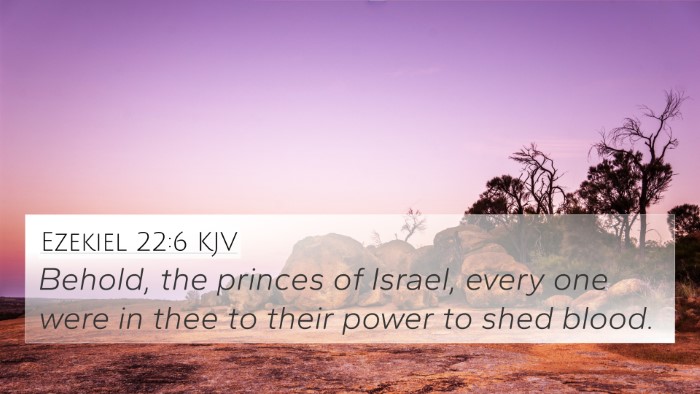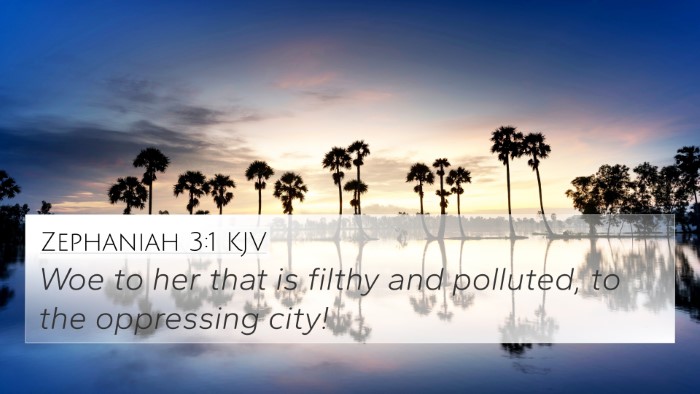Understanding Jeremiah 3:5
Jeremiah 3:5 states: "Will he be angry forever? Will he keep it to the end?"
This verse expresses a poignant inquiry into God's emotions regarding His people's unfaithfulness. The prophet Jeremiah, often described as the weeping prophet, raises this question to highlight the nature of God's anger and love, emphasizing His willingness to forgive and restore, despite His people's transgressions.
Meaning and Context
In the context of Jeremiah’s prophetic ministry, this verse embodies God's dialogue with Israel, pleading for their return to Him. It illustrates a common theme throughout the prophetic books where God's holiness and justice are paralleled with His mercy and longing for reconciliation.
Commentary Insights
-
Matthew Henry's Commentary: Matthew Henry suggests that the rhetorical question posed in this verse is meant to evoke a response from the people. He interprets it as God reminding Israel of His character—though angered by their disobedience, He remains inclined toward mercy and restoration.
-
Albert Barnes' Notes: Albert Barnes points out that the phrase "Will he keep it to the end?" signifies a hope for change. He elaborates that God’s enduring patience is a fundamental aspect of His relationship with humanity, encouraging them not to despair but to seek reconciliation.
-
Adam Clarke's Commentary: Adam Clarke reflects on the nature of God’s anger, emphasizing that it does not last forever. He stresses that while God's justice requires a response to sin, His ultimate desire is to draw His people back into fellowship with Him.
Related Bible Verses
Jeremiah 3:5 connects with several other Bible verses that emphasize similar themes of God's mercy, anger, and the call to repentance:
- Hosea 14:4 - "I will heal their backsliding, I will love them freely: for mine anger is turned away from him." This verse illustrates God's readiness to forgive and heal Israel's waywardness.
- Isaiah 54:7-8 - "For a brief moment I abandoned you, but with deep compassion I will bring you back." Here, the temporary nature of God's anger is acknowledged, revealing His compassionate character.
- Psalms 30:5 - "For his anger lasts only a moment, but his favor lasts a lifetime." This verse succinctly reflects the contrasts in God's feelings toward sin and righteousness.
- Ezekiel 18:23 - "Do I take any pleasure in the death of the wicked? ... Rather, am I not pleased when they turn from their ways and live?" This verse underscores God's desire for repentance and life rather than judgment.
- 2 Peter 3:9 - "The Lord is not slow in keeping his promise, as some understand slowness. Instead he is patient with you, not wanting anyone to perish, but everyone to come to repentance." This New Testament verse reaffirms God's patience and desire for all to turn toward Him.
- Colossians 3:13 - "Bear with each other and forgive one another if any of you has a grievance against someone. Forgive as the Lord forgave you." This verse speaks to the essence of forgiveness, a hallmark of God's relationship with humanity.
- Romans 2:4 - "Or do you show contempt for the riches of his kindness, tolerance and patience, not realizing that God’s kindness is intended to lead you to repentance?" Here, Paul emphasizes the function of God's kindness in inducing repentance.
- Lamentations 3:22-23 - "The steadfast love of the Lord never ceases; his mercies never come to an end; they are new every morning; great is your faithfulness." This captures God's enduring mercy, paralleling Jeremiah's themes.
- John 3:17 - "For God did not send his Son into the world to condemn the world, but to save the world through him." This reflects God's heart towards reconciliation and salvation rather than condemnation.
Thematic Connections
The themes present in Jeremiah 3:5 resonate with the overarching narrative of Scripture, where God's justice is consistently met with His mercy. This dynamic can be seen in the following thematic Bible verse connections:
- The tension between divine anger and mercy.
- The call to repentance and restoration.
- God's patience in awaiting the return of His people.
- The redemption narrative that permeates both Old and New Testaments.
Further Cross-Referencing Tools
To dive deeper into the connections between Bible verses like Jeremiah 3:5, consider these resources:
- A Bible concordance to explore keywords and themes.
- A cross-reference guide that links scriptures based on topics.
- Cross-reference Bible study methods to facilitate understanding overlapping themes.
- Bible reference resources that provide context and analysis.
- Comprehensive Bible cross-reference materials for scholarly study.
Conclusion
Jeremiah 3:5 encapsulates a profound truth about the nature of God—His anger, though justified, is tempered by love and the hope of restoration. This verse encourages believers today to understand the importance of repentance and the enduring mercy of God, which is a consistent theme throughout Scripture.












